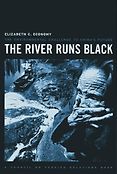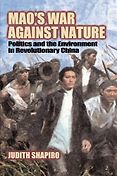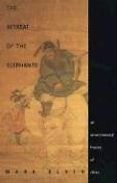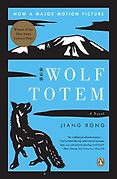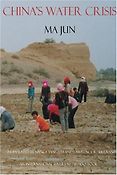When did you first become aware of China’s impact on the environment?
When I first arrived in China in 1973 there was a total of around 20 foreign students in the country. Now, of course, there are thousands, but at that time China had been closed and was very hard to get into – we were the first group allowed back into China since the outbreak of the Cultural Revolution. It was a very strange and different country.
I’ve been going back to China for more than 30 years now, and in that time China has had its industrial revolution and things have become steadily more polluted. When I lived in China in the 70s there were blue skies in the winter. Beijing in particular was famous for blue skies because they have a very dry winter, and so if you didn’t have a sandstorm you would see these lovely blue skies, very sunny and dry, if very cold. By the late 80s that had begun to disappear and they now haven’t really seen blue skies since the 90s. So it became visibly, steadily more polluted.
Having watched the world’s biggest industrial revolution happen, it does make you think about our models of industrial and economic development and the cost of them. And about how unsustainable they are. So, with climate change it’s now become an extremely urgent issue.
It wasn’t until I had read the opening chapters of Elizabeth Economy’s The River Runs Black, that I realised the scale of the problems and quite how visible these changes in the natural environment have been.
It is dramatic. I remember many years ago having to walk across a wooden bridge at Lo Wu to leave China, and all around were paddy fields and farms. And now if you go anywhere in that part of the world, apart from the fact that there are now very large cities, it is all covered with smog. And the rivers do run black. They do smell. It’s an environmental disaster.
Hong Kong, which used to be pretty clear, is now affected by the smog from Guangzhou. People just get used to it. But if I think back to how it was when I first saw it, it’s really quite extraordinary.
Elizabeth Economy suggests that this has become a problem because the Chinese government is devolving too much power, trusting other people to take charge of the environmental situation. Do you agree?
Well, the first thing to think about is that if you see photographs of, say, Leeds, in the 1890s, or if you look at what Monet painted at Westminster Bridge – if you look at what he was painting and if you look at these photos – you realise that they look very like parts of China now. Every industrial revolution has done this.
So China’s no different, although the scale is extraordinarily large, and China is in many ways a very fragile environment. Although it’s a very big country it has a very big population, and only certain parts of the country can really sustain a dense population. Everything to the west is pretty much desert, the north is pretty arid, so you’ve got a very heavy pressure on resources.
And with this industrial model, as our industrial revolution was, it’s a very carbon-intensive, get-rich-quick, clean-up-later kind of model. They just haven’t got to the clean-up bit yet. The problem is that they don’t have as much headroom as the Western industrial revolutions did when they began.
Firstly, in terms of carbon emissions there’s no headroom at all, whereas when the British industrial revolution began no one knew about it. And the problem is, we’ve been putting out carbon now for 200 years and there’s no room for any more.
So in terms of China’s carbon-intensive development, it is potentially catastrophic for everybody.
It is true that we also had this very intense, polluting development, and we are still cleaning up. We’ve exported all our heavy industry to the developing world. So China is at the stage of polluting heavily, and I don’t know if they quite realise how expensive and difficult the clean-up is going to be.
Several of the books that you’ve recommended seem to lay much of the blame for the current state of the environment at the feet of Mao, and his time in power. Judith Shapiro’s book, Mao’s War Against Nature, for example, ties Mao’s abuse of the people to the abuse of nature. Do you think she has a point?
Yes, she does, and have a look at Mark Elvin’s The Retreat of the Elephants. The environmental history of China is a very interesting one, and there is this mythology that Chinese peasants are somehow in tune with nature. But if you read Elvin you realise that in China there has actually been 2,000 years of unsustainable development and environmental degradation.
It essentially comes from the model of a highly centralised state and its need to accumulate surplus wealth – and certainly under the old imperial system this was produced by the peasants. In fact, it was also the surpluses produced by the peasants that were used for a rapid industrialisation under Mao. And Mao’s of course was a particularly catastrophic period, both for the people and for the environment.
Mao believed the theories of Lysenko: that man is in charge of nature; that nature is there to be exploited and that anything at all can be achieved with the right political attitude and a scientific approach. Well, they called it a ‘scientific’ approach, but actually it was very bad science indeed. Lysenko’s theories produced probably the worst famine in human history. In China, between the late 50s and early 60s, between 30 and 80 million people starved to death.
Now, the abusive element of that is that nobody could argue against what Mao believed, what Mao dictated; everyone was too terrified to complain, to protest, to argue against it. And if they did, you know, they didn’t last very long. So the craziest ideas were put into practice. An awful lot of the damage that has been done to China was done during that Maoist period of millenarian socialism. For instance, they lost about 35 per cent of the grassland in Qinghai because Mao ordered that they should plough the grasslands and plant wheat – and when people said, you can’t plant wheat there, they were labelled counter-revolutionary. People were ordered to plough the grasslands, the top soil then blew away, so the wheat did not grow and the harvest failed. So they created desert. In fact, they’d been creating desert for a very long time, but it was a particularly accelerated period of creating desert which was this absolutely poisonous combination of political dictatorship and crazy science.
Is this the same period of time that Jiang Rong’s novel Wolf Totem covers?
It is. Or rather, Wolf Totem doesn’t actually cover the Great Leap Forward. It’s set in the period following the Great Leap Forward. But it is still Mao’s time.
If you read Wolf Totem and another wonderful book – Julia Lovell’s The Great Wall: China Against the World – if you read those two together they provide an interesting illustration of what’s happened to the environment. Because that border – the border that has moved over history between the nomadic herders and the settled farmers – is also an environmental line.
When the central state in China was weak, the barbarians, as the Chinese Han would call them, were able to reclaim their territories which went down to just north of Beijing, and it would sort of green-up again. But when the central state grew stronger and the Han moved north they essentially degraded the environment and created desert.
So, for instance, when the Manchu held Manchuria and no Han were allowed to live there it was forested and fertile, but there is no forest left now. In 100 years they have deforested Manchuria.
Why do you think Wolf Totem has become so popular? Does it not confront quite an unpleasant truth?
It’s interesting, isn’t it? It was a very controversial book in many ways. But Jiang Rong was saying things that, had a Mongolian said them, would have aroused nationalistic indignation, but which probably needed to be said.
Wolf Totem contains certain things that have universal romantic appeal: wolves, tribesmen, and so on. But the message that central Chinese policies have been catastrophic for the people who were China’s neighbours – and who are now incorporated into China – very much needed to be said. And it was a way of criticising the party without it being about Han China. But it spoke for a lot of what had happened in Han China too.
The problem is that they go on repeating this: they’re doing it now in Tibet and in Qinghai, all those western provinces which are now being subjected to mass Han migration and to intensive agriculture. They’re trying to monetise the nomadic herders – or rather, they did try to monetise them, now they’re trying to settle them into cities. It’s really a policy of misguided colonialism with catastrophic environmental outcomes. They’ve always believed that they knew best.
One of these possible outcomes is the one that Ma Jun discusses in China’s Water Crisis. By which, of course, he means that China is in danger of running out of drinking water. What precisely is contributing to this problem?
Well, there are several things happening. North China, Beijing, is on the edge of desert and there’s been a huge population growth which is unsustainable. There isn’t enough rainfall to sustain a population, so they’ve been drilling deeper and deeper into the aquifers which are going to be exhausted quite soon.
At the same time, because of poor environmental policies, the Yellow River, the mother river of China and where Chinese civilisation began, now fails to reach the sea for much of the year. This is because of over-extraction, but also because of degradation at the head-waters: deforestation, desertification. So there’s less water coming down it, there’s more water being taken out of it, and the alternative sources – the aquifers – are running out.
And if you add to that uncontrolled industrialisation… Very little of the waste water in China, either industrial or domestic, is treated. They’ve taken the cheapest form of development which has the highest environmental cost. So if you’re pumping raw sewage into the rivers that carry your drinking water, along with industrial effluent, you run out of water. You end up with such water as you do have – which in any event is not enough – being unfit for any purpose whatsoever, as a great deal of water now is in China. You can’t even use it for irrigation.
So does Ma Jun envisage a solution for this problem?
Well, the way China’s approached water management – again, over centuries – is that they’ve always tried to engineer their way out of a problem. There are two approaches: one is conservation and the other is engineering, and the Chinese have always favoured engineering from the Grand Canal onwards.
They still do favour engineering: mega-projects like the Three Gorges Dam, or the big one now, which is the South-North Water Transfer. South China and West China for now have water and they propose this massive bit of engineering which will divert water from the south to the north.
Now the problem is that in the long term, in 25 years, west China – or as some would say, Tibet – which currently holds the largest frozen store of fresh water outside the poles may not look the same. Unfortunately, it’s something of a climate change hotspot, something that China is also contributing to, having become the largest emitter of carbons in the world. The temperatures on the Tibetan plateau are rising faster than anywhere else in the world, and that means that the glaciers are melting.
They’re melting quite rapidly. And that means that all the rivers that derive from them, which includes the Yellow River and the Yangtze, the Brahmaputra, the Indus – the eight great rivers of Asia, which derive to a greater or a lesser degree from these glaciers – will first flow faster and then shrink, and they will probably become seasonal.
And that means that nearly 40 per cent of the world’s population is facing long-term, severe water shortage. Including, of course, China. So the diversion of water from the Brahmaputra to North China is of concern, not only for environmentalists but to everybody downstream, and that includes an awful lot of countries and an awful lot of people.
China is sitting on the tap. China is the only country in that part of the world that is currently damming transnational rivers.
Is there nothing in international law which can prevent that?
No. International law is extremely weak on this, and there are no trans-boundary agreements in that part of the world, except on the Indus.
That is one of those agreements that’s survived international hostilities of all kinds, because of course it involves India and Pakistan, and it’s held up despite everything that’s happened. But there are no trans-boundary agreements involving all the states on the other rivers. It’s one of the things that I feel we ought to pay some rather urgent attention to before this becomes a dispute. Water scarcity can become a source of conflict. Certainly India, being one of the downstream countries, is extremely concerned about China’s dam-building.
There’s a famous book which was promoted by the China Ministry for Water Resources, provocatively entitled Tibet’s Water Will Save China. Well, Tibet’s water isn’t China’s water. Tibet’s water belongs to Asia. If you look at that region from the air, there’s this great horseshoe of mountains, and all the rivers in Asia derive from those mountains.
Do you think there’s any hope that the Chinese government might make some form of U-turn? I read a rather inspiring 2005 interview with Pan Yue, deputy minister for the environment – can he make a difference?
Yes, he’s a great guy. Unfortunately he’s been having a bit of a difficult time. You can find a lot more from Pan Yue on China Dialogue, which contains many of his essays. He’s a very interesting thinker, one of the very progressive voices. But it is significant that you don’t really hear from him any more.
Is he part of a group in China, or very much a lone voice?
Well, he’s one of a group in the sense that he has a big following, and he’s certainly done a great deal to help the environmental movement grow, but he’s not a politically powerful figure. He’s been passed over for promotion. The ministry for the environment – at one point at least, and it may still be true – had fewer personnel to look after the whole of China than there were working in Mao’s mausoleum in Tiananmen Square. You can’t have an effective environment ministry with 400 people looking after 1.3 billion. In the US, with its much smaller population, the ministry for the environment has in the thousands. Tens of thousands.
So you can tell how much priority the government gives to environmental issues just by looking at the institutions that they’ve set up. Unfortunately they’re not very convincing.
There isn’t any one authority powerful enough to do things like fine people properly for discharging effluent. It’s cheaper still to pay the fine than it is to install a water treatment plant in your factory. And so, of course, they simply pay the fines and they carry on.
Get the weekly Five Books newsletter
So it’s very tough actually, and it’s very tough because you’ve got a very pernicious combination of political and economic power, and you have very few checks and balances because rule of law is very weak. If you look at what happens to environmental activists when they come up against economic interests – well, they don’t win. Very rarely do they win. Lawyers can be threatened, have their licences taken away, and there isn’t a free press.
So if you think about the mechanisms for environmental clean-up in the West, in the end public outrage plays a part. People are concerned for their health, their children’s health; they feel that polluters ought to pay, that people shouldn’t dump their effluents into the public realm for the sake of private profit.
In order to remedy these abuses you need a state that is very determined. And if you have a state in which the servants of the state, the power-holders in the state, have the same interest as the industrialists and the economic power-holders – which you have in China – then it takes a long time to bring any pressure to bear.
It’s not that no Chinese care about this; there are a lot of Chinese who care about this. It just takes a while. And to balance this, China has made progress in terms of the laws that have been passed, and there are a lot of people doing very serious work on how to change things.
Five Books interviews are expensive to produce. If you're enjoying this interview, please support us by donating a small amount.
There is even now a public right to know and transparency and so on, so the mechanisms are beginning to be built, it’s just a matter of how to make them work effectively and slightly more rapidly.
So there’s still hope?
Yes. It’s just hard work.
Interview by Cal Flyn, Deputy Editor
June 25, 2010
Five Books aims to keep its book recommendations and interviews up to date. If you are the interviewee and would like to update your choice of books (or even just what you say about them) please email us at [email protected]
